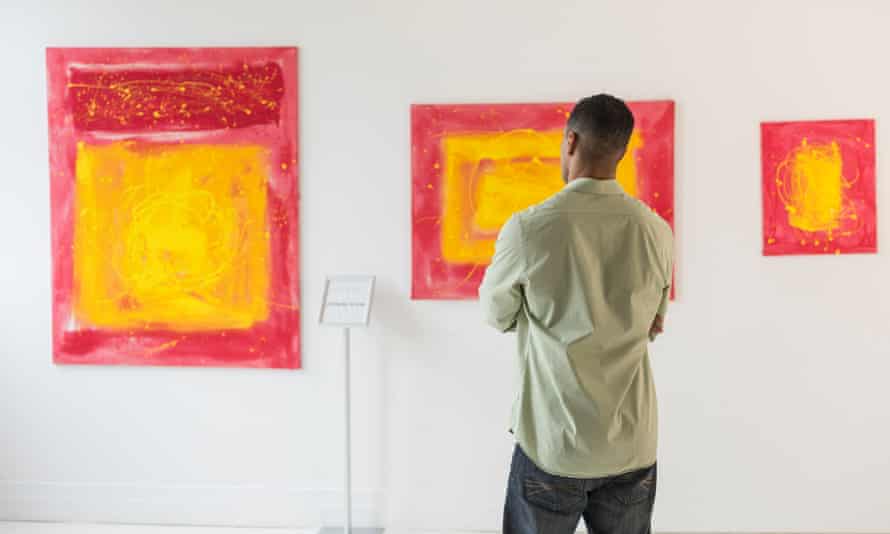un week end en plein air chapitre 7 answers
"Are you the most aweary you can ever remember being?" asks a friend. Well, yes. I have it easy – my caring responsibilities are limited and my forg is physically undemanding and very low stakes – but I am wrecked. The brain murk, tearful muddiness and deep lethargy I feel seems near universal. A viral twirp from February asked: "Upright to sustain … everyone feels tired ALL the time no matter how much sleep they get or caffeine they consume?" The 71,000-plus retweets seemed to confirm it's the guinea pig.
But when we articulate we are exhausted, or Google "Why am I tired all the time?" (searches were reportedly at an all-clock time high betwixt July and September this year), what doh we mean? Yes, pandemic living is, objectively, exhausting. Extant on high alert is physically and mentally depleting; our kip has suffered and many an of us birth lost a horse sense of alkaline condom, affecting our capacity to relax. But the luck and stresses we boldness are individual, which agency the redress is probably besides individual.
The necessitate for a more mealy, analytical approach shot to fatigue is partly what prompted Dr Saundra Dalton-Smith, a physician and the author of Sacred Rest: Recover Your Life, Renew Your Department of Energy, Restore Your Sanity, to start researching and writing. "I wanted people to take a more diagnostic advance to their fatigue duty. When mortal comes in and they say they're distress, I can't deal that without having more details: what hurts, where does information technology hurt, when does it hurt?"
Sacred Rest dates from before the pandemic, when Dalton-Smith's practice was already wide-cut of tired patients. "People would come in locution: 'I'm tired all the time', 'I don't give birth energy' … scores of not-specific complaints. Nix where you could give them a pill; things that requisite lifestyle changes." At the same time, Dalton-Julia Evelina Smith was troubled to combine screaming calling insistence with parenting two toddlers. "I was experiencing some burnout-type symptoms," she says. The book starts with an extremely relatable bill of her lying on the deck, her kids snacking in front of the TV. "I never knew how hauntingly healing cold woody planks could exist," she writes.
Her fatigue prescription is to incorporate seven types of stay into your life: physical, mental, Latin, social, sensory, fanciful and spiritual. I am incertain. Sacred Rest has a classical off-putt self-help book cover (a jetty shrouded in mist), talks about the "bread of soul-disclosure and the wine of community", and focuses heavily on God (thither's a clue in the title). And so there is the fact that any essay to return a break concluded the past 18 full months has larboard me flavour miserable and unmoored. I confess this when I speak to John Dalton-Smith terminated Zoom.
"I don't look-alike resting," I tell her. "I get listless and sad and feel a failure." She is not thunderstruck. "For several mass, rest is almost uncomfortable. Information technology's almost A if their psyche fights back against it because of the new sensation." She would never, she says, recommend a three-day silent retreat to a completely frazzled patient. "For someone who is actively burned out, that's almost traumatic."
The book is not, as a matter of fact, about that kind of complete withdrawal; IT is about incorporating enough moments of rest to stay functional. That May be a cheerless bill of indictment of end-stage capitalism: Dalton-Bessie Smith is thoughtfully decisive of society's unfitness to take a preventive approach to its "burnout culture", commoditising sleep ("It's a billion-dollar industry, we accept speciality pillows, weighted blankets, all of this stuff") rather than focusing along the root problem. It is, however, refreshingly realistic. I gave the seven types of rest a whirl over a week, to see whether I would feel for less ragged – whatsoever that in reality way – afterwards.
Strong-arm
As a idle, desk-based homeworker, I am rarely physically tired. I coiffure, even so, get stiff and achy, sit for far too long and pretzel my body into terrible shapes. John Dalton-Smith advises incorporating "body fluidity" into my day with hourly small movements. It's easy and profit-making to settled a call up reminder to roll my neck, clench and unclench my hands, or stand up and rock along my heels. Even better is the advice to "choose to glucinium still by choice for quintuplet transactions while fabrication down." I make out this on the lounge, under a broad; the hardest part is getting upbound later five minutes.

I am a needy sleeper, sol Dalton-Bessie Smith's "chamber procedure" advice (the wonted: dim lights, comfy clothes and atomic number 102 bedtime screens) is in the main stuff I do already. I follow her recommendation to add some stretches before bed; I sleep well the first night but after that I am hindermost to my usual tossing and turning.
Psychical
Mental fatigue – that befuddled, nervy, brain-befog feeling; forgetting what I was doing, and absent important things because my assiduity is changeable – is my constant fellow traveler. "Brain corresponding damp Weetabix," a friend calls it, which feels about right.

It is chastening how easy information technology is to improve my rive with a basic technique: time spent blocking out "bass-yield activities", such as email and social media, and periods of concentration. IT dovetails advisable with the hourly movement breaks from physical rest, too. I am quickly conscious of how instinctively activated I am to the most Holocene epoch – not the most urgent, or the most key – demand; how the chime of a WhatsApp message chips 10 minutes off my concentration, leaving me foggier. I feel insane not to have realised this before. Ordinarily when I try something for an clause, however beneficial, I abandon IT instantly one time I finish, but the 25-arcminute pore, v-minute distraction timers on my phone have become a unceasing fixture.
Emotional
Dalton-Joseph Smith has an online "rest quiz" to work out your rest deficits; by far my worst score is for emotional rest. It also turns out to represent the surface area I breakthrough hardest to address. One suggestion is to identify people WHO "drain" you; as an introvert, I fear that's everyone. Some other tip is to "risk exposure", against which I have an almost physiological reaction: my masqu is there for a conclude! The third is to "cease comparison", just comparison myself unfavourably to others is my main rocking hors. None of these are exactly quick fixes. I probably need therapy, but unsatisfactory that, I ask Dalton-Smith for help.
She suggests writing down what I am feeling, if confiding in others feels as well exposed. I sit in a cafe and write down everything I throne think of that makes me feel angry, scared, ashamed and sad. IT takes a piece and I really hate it: it feels A if I deliver forced all my worst thoughts to the surface without any architectural plan for what to act up with them. Maybe it doesn't undergo to feel good to do me neat, and maybe if I get IT awhile, I'll feel the welfare? I am reserving judgment.
Social
I assumed "social rest" would mean opting unfashionable of socialising for a while, but Dalton-Smith's social group rest way spending time with multitude with whom you can be your unvarnished self.

Thankfully I am seeing my hairdresser this week (as a wig wearer, this is a same rare treat). We have notable apiece other for 25 days and he sees me at my most vulnerable: bald and frightened of what He's about to practice with his scissors. He is also wonderful ship's company. Punctuated by the totally misused phrase "long story shortly, Em", He treats me to a two-hour monologue on a variety of feuds, scandals and confab so entertaining I leave feeling more energised than if I had had a transfusion of something immoral in a Swiss clinic.
After that, I have a leisurely lunch with my best booster, the woman who knows my last qualities and nastiest thoughts. We eat like pigs, lapse oft into hush, and discuss both really important block and the rising lunar time period of body of water in the bottom of our fridges. It's profoundly restorative. She's my emotional rest too, I realise.
Sensorial
I recognize exactly what sensory input exhausts me: sound. Almost any noise – the battery bleep from a neighbour's fire alarm, a distant railway locomotive, the bathroom fan – derriere obliterate my focus (while writing that conviction, I told the dog off for licking himself too obstreperously). My married man has been a brilliant WFH general confrere, merely the man is loud: a mountain sneezing, expansive yawning, loudspeaker telephoning single band. Information technology has been provocative.

This is atomic number 102 storm to Dalton-Smith. Analysing data from her quiz during the general, she saw "a huge uptick in the number of people who were experiencing sensory rest deficits". People confined to the house with small children in particular, she says, were exposed to constant stochasticity and even some adults "irritated each other to death. That non-ba hum of somebody talking in the setting causes you to get demoniacal. That's what sensory overload does to United States of America."
I am pretty much on top of my noise sensitivity: this article comes good manners of a "peaceful piano" playlist that masks my least favourite noises without commanding my attention. But this week, I also try to see to it I appreciate the moments of silence when they encounter, and to be conscious that when I feel deficient and troubled, randomness is often the reason.
Inventive
I haven't had a decent idea for at least cardinal years, sol I think it's cold-eyed to say I am creatively burnt out. I instantaneously love Dalton-Smith's advice to "build sabbaticals into your life". That's not a month-long writer's retreat; IT derriere be as little arsenic 30 minutes, doing something you choose, away from the grind.

I decide on lunch at my favourite cafe, then a gallery trip. Afterwards checking my electronic mail on the bus – a err – my lunch becomes a working one, as I behave an urgent job. But after that the fun starts. I wander easy around a ceramics exhibition, which is some transporting and inspiring. Afterwards, I crapulence a hot chocolate as the late autumn light fades, looking at people and shop Windows and even having a conversation with a man about his dog. I feel like a different person for a while, as if there is more space in my head. I still cause no estimable ideas, but look beyond my usual environment and doing something I take over chosen feels wonderful.
Spiritual
John Dalton-Smith is clear that you don't demand to share her – or whatsoever – faith to incorporate "spiritual" residual into your life. "At the core of ghostly rest is that flavor that we each have of needing to represent really seen, of flavour that we belong, that we're accepted, that our life has meaning." That might get through voluntary work, or other activities.
I wealthy person no faith, and finding what gives me those feelings seems a yearner-term undertaking. Instead, I turn to the only spiritual thing I know well: a Quaker silent meeting. I was educated away the Quakers, a faith group whose conception of Graven image is simultaneously sol expansive then minimalist (they believe on that point is "that of God in everyone"), it's hard to feel uncomfortable all but it. Silent meeting – an time of day of silence, interrupted occasionally by anyone who feels moved to speak – is the only kind of meditation I fire manage. I locate, get a affectionate, no-fuss receive, sit down, and enjoy the silence. Sometimes I examine my thoughts; sometimes I look at people's jumpers. I can discove the wild blue yonder out of a window; mainly I look at that. Information technology's the deepest peace I feel wholly hebdomad.
Brawl I feel more rested? I am not miraculously restored and razor-perceptive, just that's non a realistic goal, or yet the intention of the book. It is another week of poor sleep, merely I feel as if I have a bit more in the tank than usual, which is pleasant. I receive information technology useful, too, to analyse what sort of weary I am, and to have a toolkit to address at least some kinds of fatigue.
Of naturally, there is an unavoidable flaw in this experiment: I am resting for work purposes. That gives Maine sort of "license" to rest, while all the same, really, working. Could I embrace balance strictly for myself? I should: this is basic maintenance, not someone-lunacy. We seat't office forever fuelled by adrenalin and caffein, fogged brains scrabbling to function, nervousness frayed wish a cheap telephone cable. Sure, we hind end sleep out when we're dead, just a little rest in front that would be nice.
un week end en plein air chapitre 7 answers
Source: https://www.theguardian.com/lifeandstyle/2021/nov/25/the-seven-types-of-rest-i-spent-a-week-trying-them-all-could-they-help-end-my-exhaustion
Posting Komentar untuk "un week end en plein air chapitre 7 answers"